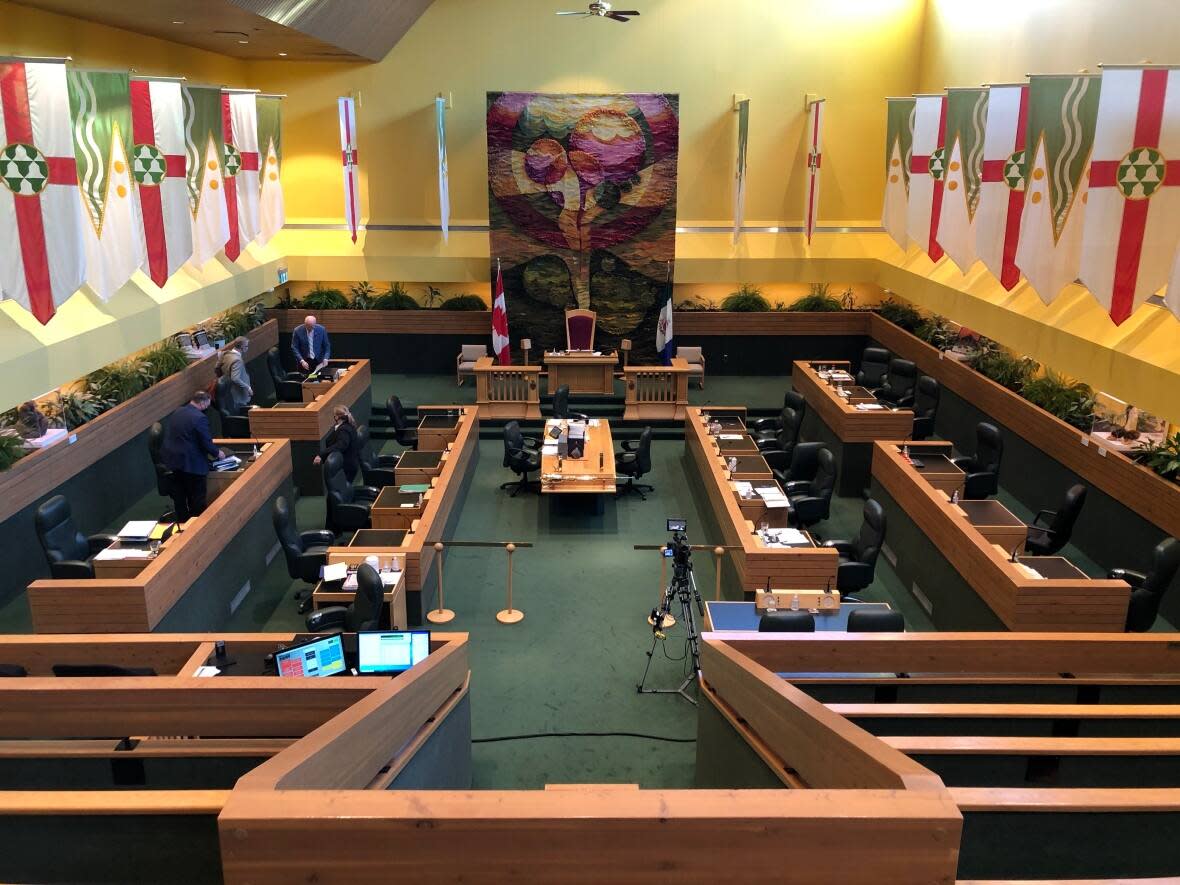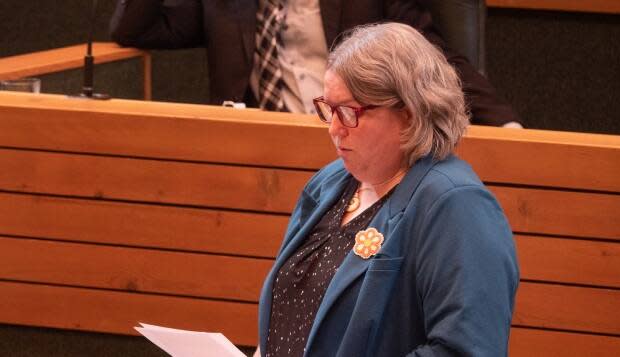As Yukon MLAs return to Legislative Assembly, questions linger about the future after Sandy Silver

As MLAs return to the Yukon Legislative Assembly, questions loom over the fall sitting regarding what happens after the departure of Premier Sandy Silver.
Silver announced last month he will resign as the premier once the governing Liberal Party selects a new leader. He will continue to represent the Klondike riding until the next election.
Both opposition parties in the assembly issued a joint statement this week calling on Silver to set "clear rules" for cabinet ministers who could end up vying for his job. The Yukon Party and the Yukon NDP demanded guardrails to ensure ministers don't use their positions or government resources to campaign.
They also pointed to convention in Canadian politics as they called for cabinet ministers seeking leadership to resign from their posts.
In an interview with CBC News, Silver said he will not require ministers to do so, as any candidates would already be bound by existing laws. He said his office consulted the Conflict of Interest Commissioner, who did not raise any concerns.
"So I am not going to enforce any new rules, but I will expect anybody who's running for the honour of being in this role to conduct themselves with the utmost integrity," Silver said.
"The opposition sometimes cherry picks when convention from other jurisdictions should apply here and when they shouldn't apply here."

Whenever Silver's successor is chosen, Yukon Party leader Currie Dixon is calling for an election soon after. The new premier, he said, should seek a mandate from Yukoners to continue governing.
Dixon has his reasons to believe his party would fare well at the polls. This week, the party released results of a poll conducted by the firm Leger that has the Yukon Party leading in support among decided voters at 45 per cent. The NDP polled second at 30 per cent, with the Liberals dropping to third at 23 per cent.
Granted, the poll itself was commissioned by the Yukon Party and polls merely capture a moment in time anyway. But this one gives Dixon confidence that his party is winning over Yukoners.
"Obviously, we're happy to see that kind of polling. It gives us a good vindication that we're on the right track," Dixon said. "But we know there's a whole lot more work to do, and we need to stay focused on the issues that matter to Yukoners."
No more CASA, no more rent cap
Since April 2021, the Yukon NDP has kept Silver's minority government in power through a confidence-and-supply agreement (CASA). It is not a formal coalition. Instead, the NDP lends the government support in exchange for the government advancing several policy priorities.
NDP leader Kate White has not committed to extending CASA when it expires at the end of January. It appears the new Liberal leader will factor into negotiations.
"So I have no idea where this next person will come from, what they will be willing to do or not do," White said.

If CASA ends, so will a key policy the NDP negotiated into the deal in response to the Yukon's housing shortage — a cap on rental increases at the rate of inflation, which under CASA continues "through the term of this agreement."
"So what are we going to do now, in the interim, if that happens," Silver said. "Is there a solution that we can work with the private sector? We can work with the people that provide housing, other governments as well, come [up] with an elegant solution."
Another concern with the rental market, the NDP has been calling for the end of no-cause evictions. In the Yukon, a landlord can evict a tenant for any reason. White said the party will "absolutely" raise the issue, among others related to housing.
"We'll be talking about … the importance of creating partnerships to build new housing. We'll be talking about staff accommodations, because in rural communities, it's really hard to have teachers if you don't have places for them to live," she said.
Government bills to come
This summer, the Yukon experienced a historic wildfire season, both in terms of the number of fires and the total area that was burned. For Silver, it showed the need for action on climate change.
"We had a major forest fire in every fire region in Yukon this summer. This is extremely important," he said.
While he couldn't give too many details, Silver said the government will be tabling the Clean Energy Act. The law is to legislate the territory's commitments on greenhouse gasses — cutting emissions by 45 per cent from 2010 levels by this decade (also negotiated through CASA).
Silver said the government will also table amendments to the Animal Protection Act and a supplementary budget.
And, Silver said more work is needed on mental wellness, substance abuse and increasing support in rural communities.
"We have the ills of a very successful jurisdiction from an economic perspective as well, with the increase in the population," he said.
"Leading population [growth] in Canada comes with housing issues. With the success of businesses, and more people wanting to be here … we're seeing a lot more of the problems that major cities have when it comes to drugs."
Opposition to hammer away on affordability
This sitting, Dixon said his party will hold the government to account on the staffing shortage businesses are facing and the thousands of Yukoners without a family doctor. However, he said the most pressing issue for Yukoners is the rising cost of living.
"That's something that we have been pushing for the last year or so: To try to get a more coherent response from the government," Dixon said.

"Instead, they've dismissed our suggestions over the last year as gimmicks or parlor tracks, and unfortunately, haven't taken the sufficient action."
The August numbers from the Yukon Bureau of Statistics show that in July, the Consumer Price Index in Whitehorse rose 7.7 per cent on a year-over-year basis, in line with the rest of the country. Big drivers for that increase have been the cost of traveller accommodation, fuel and gasoline.
While the government has announced a package of inflation relief measures, it has been panned by the Yukon Party and NDP as being late and miserly.
"And so unfortunately, what we are well aware of is that there is no plan to deal with cost of living, that they've taken a few steps which are good, but they really are out of touch with Yukoners on this important issue," Dixon said.

 Yahoo Movies
Yahoo Movies 
